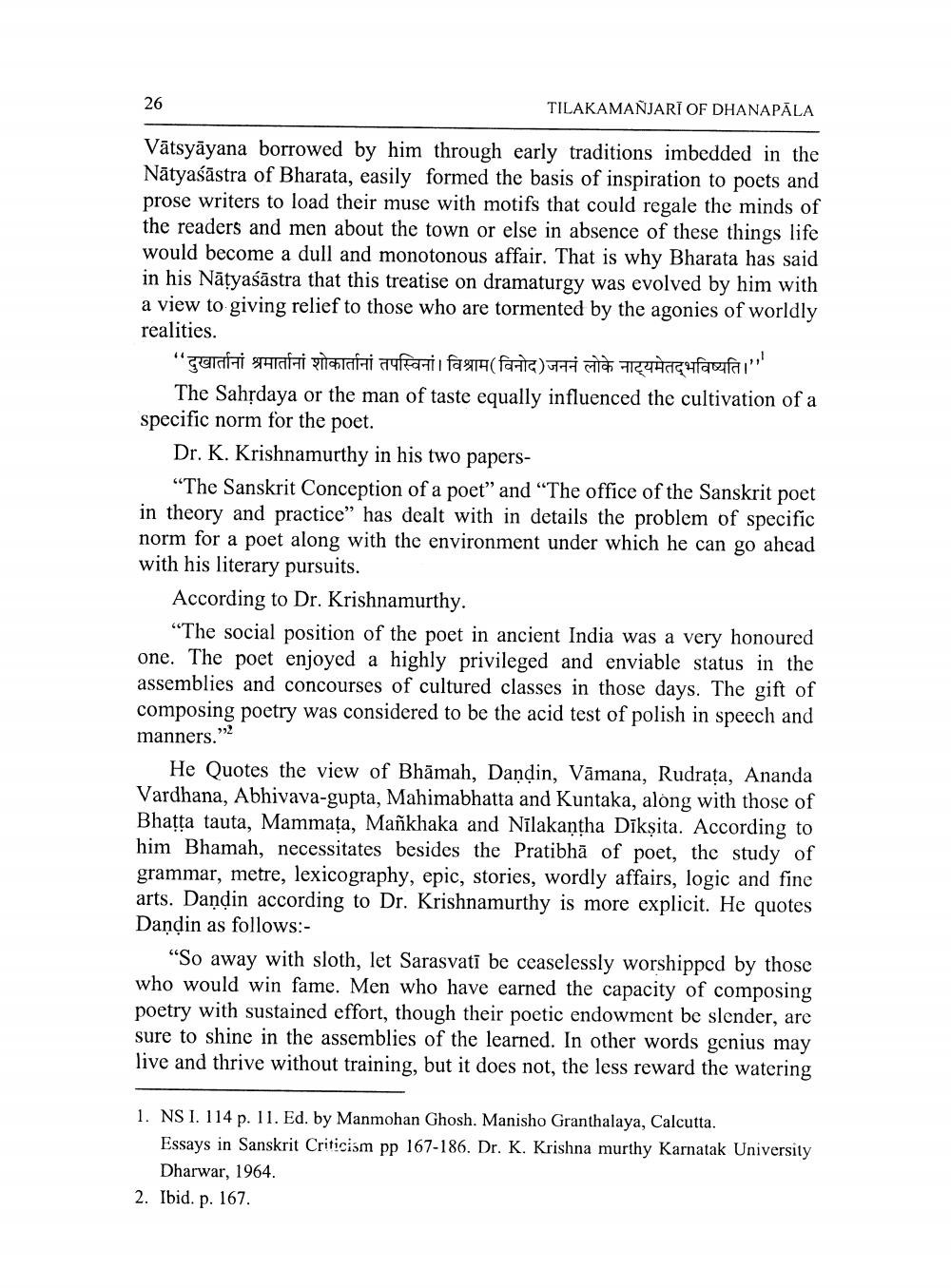________________
26
TILAKAMAÑARĪ OF DHANAPĀLA
Vātsyāyana borrowed by him through early traditions imbedded in the Nātyaśāstra of Bharata, easily formed the basis of inspiration to poets and prose writers to load their muse with motifs that could regale the minds of the readers and men about the town or else in absence of these things life would become a dull and monotonous affair. That is why Bharata has said in his Nātyaśāstra that this treatise on dramaturgy was evolved by him with a view to giving relief to those who are tormented by the agonies of worldly realities.
"दुखार्तानां श्रमार्तानां शोकार्तानां तपस्विनां। विश्राम(विनोद)जननं लोके नाट्यमेतद्भविष्यति।''
The Sahțdaya or the man of taste equally influenced the cultivation of a specific norm for the poet.
Dr. K. Krishnamurthy in his two papers
"The Sanskrit Conception of a poet" and "The office of the Sanskrit poet in theory and practice” has dealt with in details the problem of specific norm for a poet along with the environment under which he can go ahead with his literary pursuits.
According to Dr. Krishnamurthy.
"The social position of the poet in ancient India was a very honoured one. The poet enjoyed a highly privileged and enviable status in the assemblies and concourses of cultured classes in those days. The gift of composing poetry was considered to be the acid test of polish in speech and manners."2
He Quotes the view of Bhāmah, Dandin, Vāmana, Rudrata, Ananda Vardhana, Abhivava-gupta, Mahimabhatta and Kuntaka, along with those of Bhatta tauta, Mammata, Mañkhaka and Nīlakantha Dīksita. According to him Bhamah, necessitates besides the Pratibhā of poet, the study of grammar, metre, lexicography, epic, stories, wordly affairs, logic and fine arts. Dandin according to Dr. Krishnamurthy is more explicit. He quotes Dandin as follows:
"So away with sloth, let Sarasvati be ceaselessly worshipped by those who would win fame. Men who have earned the capacity of composing poetry with sustained effort, though their poetic endowment be slender, are sure to shine in the assemblies of the learned. In other words genius may live and thrive without training, but it does not, the less reward the watering
1. NS I. 114 p. 11. Ed. by Manmohan Ghosh. Manisho Granthalaya, Calcutta.
Essays in Sanskrit Criticism pp 167-186. Dr. K. Krishna murthy Karnatak University
Dharwar, 1964. 2. Ibid. p. 167.




